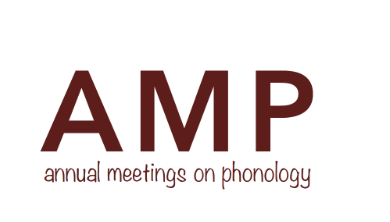Learners' Generalization of Alternation Patterns from Ambiguous Data
Abstract
This study explores how learners generalize from ambiguous data in phonological alternation learning. Drawing on theoretical frameworks and empirical data, we investigate whether learners lean towards simpler or more complex generalizations and whether they form single or multiple generalizations when the exposure alternation pattern is compatible with multiple possible generalizations. Using an Artificial Language Learning paradigm, the experimental design presents learners with ambiguous data to assess their generalization strategies based on feature complexity. Comparisons are drawn with patterns observed in phonotactic learning studies to examine potential similarities or differences in generalization preferences between the two processes. Our findings suggest that learners prioritize simplicity by favoring the simplest generalization with fewer features, aligning with previous phonotactic generalization research. However, the current data reveal that learners tend to focus on a single generalization rather than multiple ones in alternation learning, diverging from the preference of managing multiple generalizations in phonotactic learning. This study offers insights into how learners navigate various phonological generalizations when faced with uncertain alternation input.
How to Cite:
Yu, B., Zheng, S. & Do, Y., (2025) “Learners' Generalization of Alternation Patterns from Ambiguous Data”, Proceedings of the Annual Meetings on Phonology 1(1). doi: https://doi.org/10.7275/amphonology.3008
Downloads:
Download PDF
927 Views
499 Downloads
